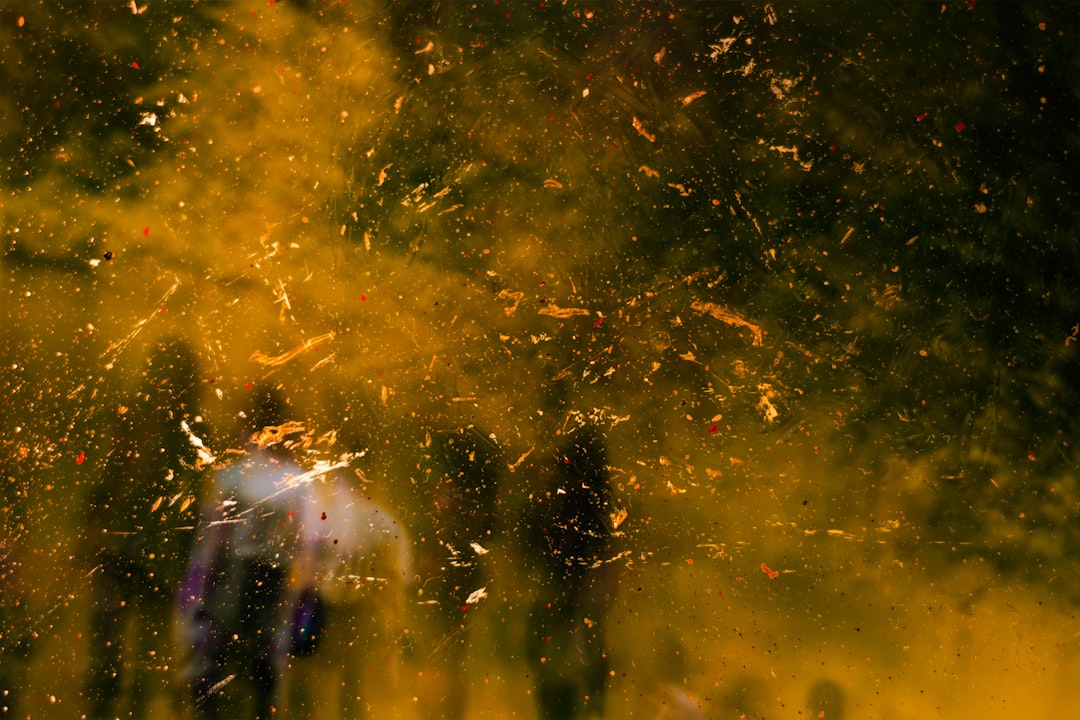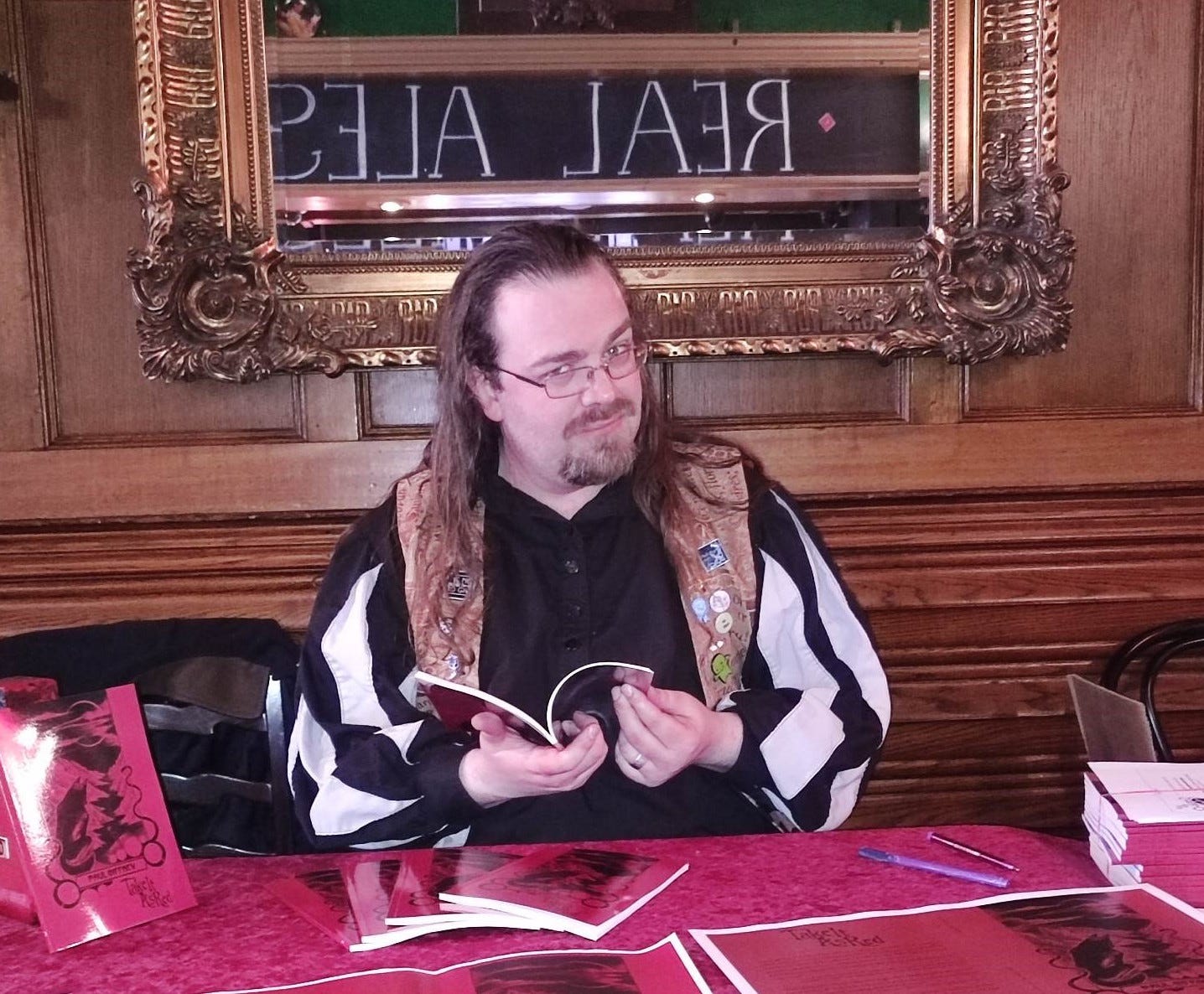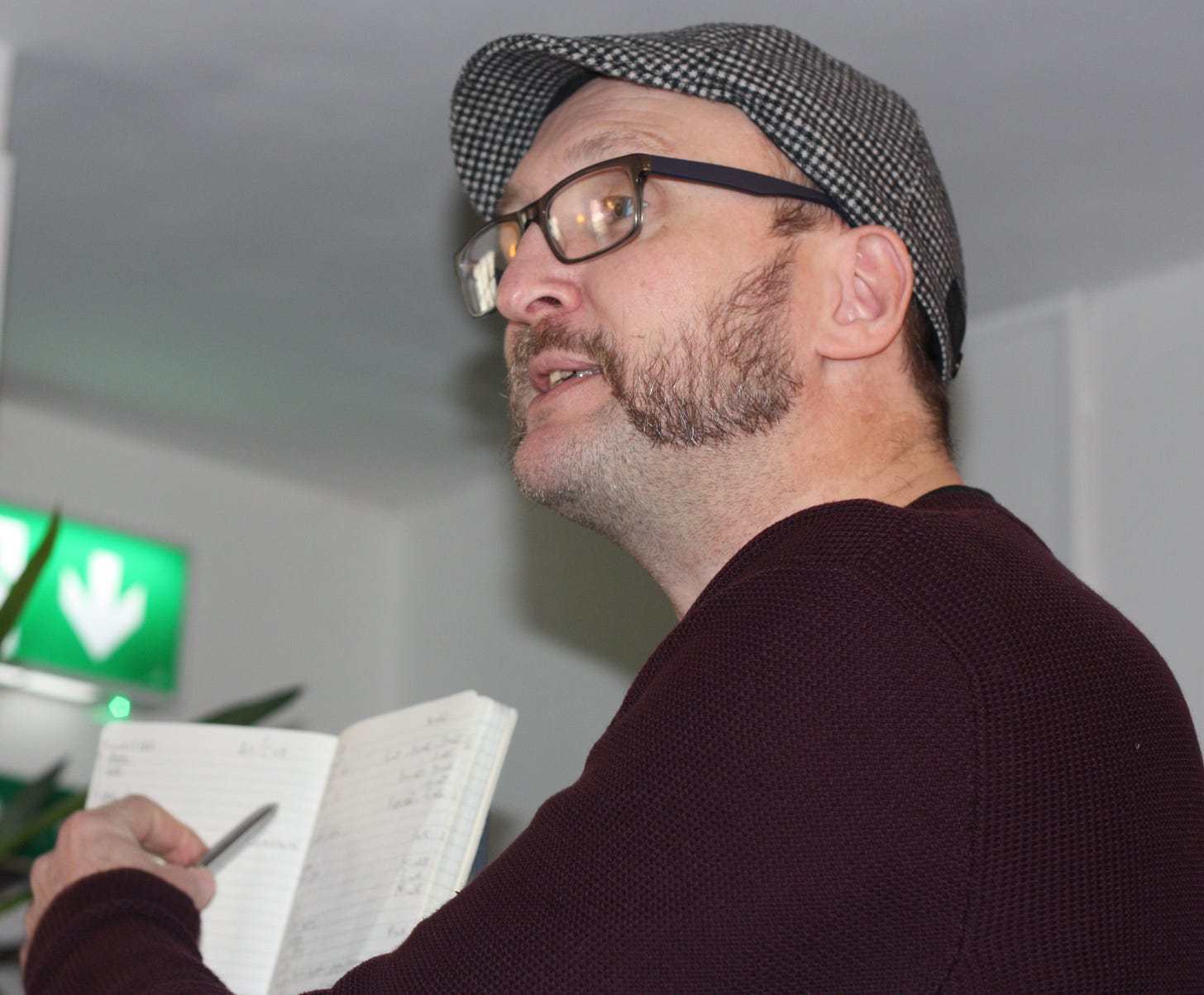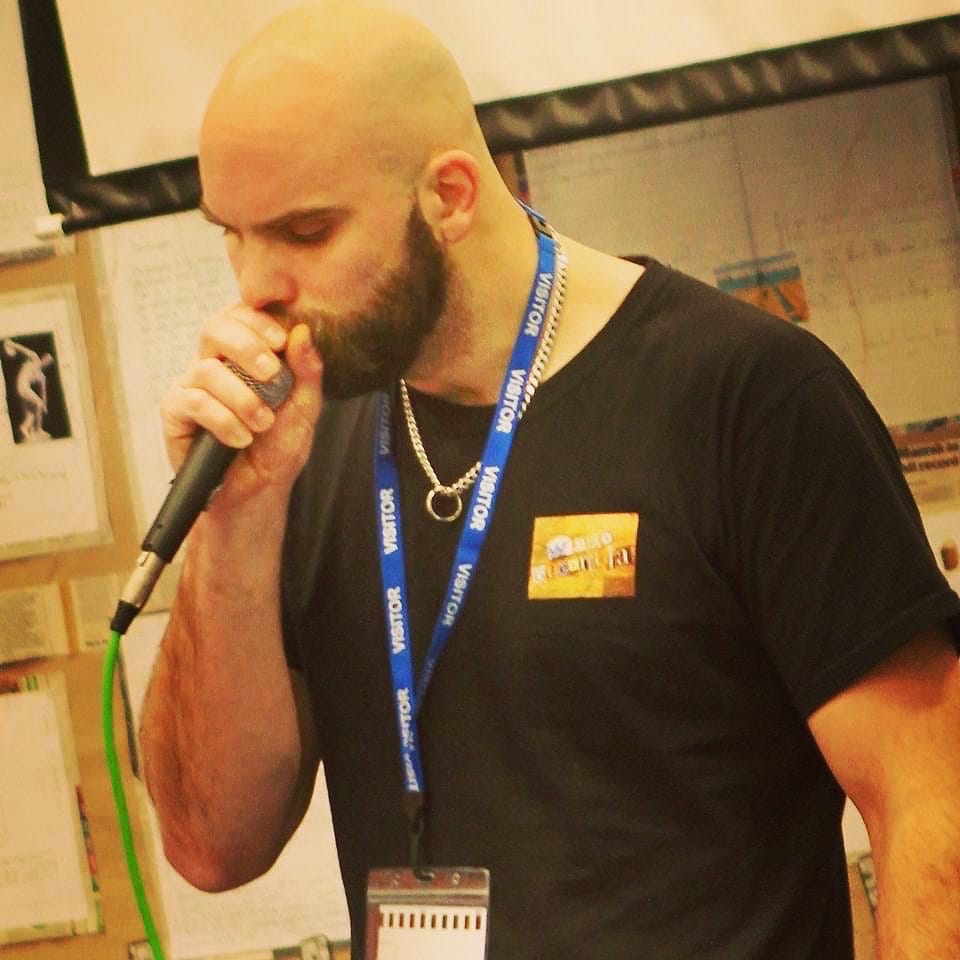Poetry's new golden age
Poetry is experiencing a resurgence in popularity and some Northamptonshire poets are inspiring a wider audience by breathing new life into ancient forms.
By Sarah Becker
Poetry is often viewed as fiction’s poor relation – a thin book of verse gathering dust on the bookshelf - but times are changing.
A recent study published on World Poetry Day, found that a third more children and young people read poetry now, compared to 2010. And it’s not just children.
More adults are reading poetry too. Book sales of poetry in the UK have almost doubled in the last ten years from just over three quarters of a million annually to more than £1.3m1 with an increasing number of people creating verse as well.
One such Northampton poet is 44 year-old former head teacher and former Bard of Northampton, Paul Giffney who has just published a book called Take it as Red, in which, in 23 poems, he explores the world around him.
He says:
“To many people poetry was something they were forced to analyse at school and many poems may not have connected with a younger audience.
“Traditional poetry often by Poet Laureates of a certain era are not those that a typical 14, 15 or 16 year old can access - about being a mum or being heavily in love. Generally people can sympathise with war poetry but can’t empathise,” he says.
The subjects Paul writes about are wide ranging and eclectic – from the mythological to contemporary subjects such as the NHS, Covid, the desire for validation, the Samaritans and mental health.
Paul, who self-published his book of verse in March, says:
“The book is a collection of poems split into four themes. Seeing Red explores everything that makes me angry; politics, money manipulation and the current state of the world. Painting the Town Red introduces poems from my perspective of being Bard. In Red Tape, I examine the bureaucracy of the world and Red on You focuses on the bloodier aspects of you.
“Writing poetry is a partly self-cathartic and autobiographical experience, it’s also about the world that I happen to be in and I want other people to read these poems who can say ‘Yes I get that, that applies to me’.
“I like things with a twist and to make people think.”
In the poem Stickers he examines the desire for validation and applause and shares a memory of when it first started - with a sticker in the dentist chair.
I do remember a sticker though
An adhesive acknowledgement
A decal demonstration of my dental hygiene.
I brushed my teeth! Smiley toothbrush face.
I was five.
The theme of nature is given a contemporary twist by Paul in the poem Anxious Bliss about how nature remained unaffected during the pandemic.
The trees are not socially distanced
The river has not been flow tested
The birds and butterflies are not masked
I am still.
It took Paul more than two years to write the book which he published through the book printing company Bookvault.
“I felt I had a body of work that was good enough to share. I want my book to be for other people.”
Poetry could be the tonic some people seek in times of trouble according to Andre Breedt, managing director of Nielsen BookData.
“In times of political upheaval and uncertainty, people turn to poems to make sense of the world and poetry is resonating with people who are looking for understanding. It is a really good way to explore complex, difficult emotions and uncertainty,” he says.
Is the pandemic, the war in Ukraine and political and financial uncertainty fuelling the UK’s boom in poetry’s popularity?
Interestingly the best selling anthropology of verse so far this year is entitled I wish I knew: poems to soothe your soul and strengthen your spirit by Donna Ashworth, suggesting some people are turning to poetry for comfort.
Chris Matthewman, church minister and current Bard of Northampton feels that the current poetry scene in the Midlands and in Northampton is certainly flourishing.
He says:
“If it had ever gone away, and I’m not sure it has, poetry is back,” he says.
Part of his remit of being the Bard of Northampton is to support poetry and spoken word events in Northamptonshire.
These are springing up in the The Black Prince pub, the Lab club, the Umbrella Pavillion and at V and B Northampton where people are coming together to create and share poems they have written.
These events attract a diverse crowd, says Chris.
“It's quite nice to go to these events where there are people in all stages of life and from diverse political spectrums. It’s not always angry young people.
“There are a lot of people with something to say and poetry is a vehicle for that.
“Poetry is like a little photograph, capturing what you thought or what you felt at a particular time. It may have just captured a season of your life.
“It’s great when your piece resonates, comforts or encourages someone else who is in a similar season or in a different time and space.”
He thinks that social media is also playing a part in the increase in poetry’s popularity.
Verse is being created and shared in new ways. Chris himself has started experimenting with creating films and puppetry of his poems which he posts on Facebook and YouTube.
It’s a theory that Northampton writer, performer, educationalist and workshop facilitator David Bowden, agrees with.
“Because poetry is so short, people can just snap it up. I think it fits in with a model of consuming things in bite-sized chunks”, he says.
38-year old David left a 15-year career as a headteacher and teacher of a primary school to set up his own company Word Guerrilla.
He delivers poetry and music based workshops in schools across Northamptonshire to engage, entertain and inspire a love of the written word in students from nursery age to sixth formers.
Sound creation very much forms the bedrock of his poetry performance. His set includes sounds, loops and beat boxing.
“What I am good at is constructing and piecing together sound. I like beat boxing because it’s something we can play with. I’ll just pick up a guitar and play in a state of flow. I find that with words as well. Playing with words especially with rhyme. Anything that involves playing is very therapeutic.”
He says:
“I write poetry to perform which is why I haven’t pursued writing a book of poetry. It can sit on a page but that’s not where it should be. It should be performed out loud.”
“Words have the power to set you free.”
“The idea of ‘word guerrilla’ is that thinking and writing is my fighting –I picked up writing originally because of the battles going on in my head. Poetry sets our own minds free.”
And the children in schools he works with often love his unique style of delivering verse.
He says:
“People come to me saying kids didn’t like poetry and now that they do. Kids have recommended me to their parents who are teachers and ask to get me into their schools.”
“A parent will say their kids are buzzing and want to buy a poetry book. That’s what I love.”
Haiku for a tiny baby
You drink lots of milk.
Afterwards, you go to sleep.
Peace…Later you cry.
© David Bowden 2018
You can support our writing by becoming a paying member
1,308,226 according to statistics from Nielson BookData





Really interesting read. I have much respect of the poet's and their work mentioned. However, I have problems with the framing of this article as if three white men speak for everybody.
There is a counterstory, on the perspectives of Black and Brown poets/creatives in the local area. The framing of this article fails to mention that this is a local arts scene that benefits white men and centres the largely cis white male gaze. It comes from a worldview where things like racism and misogyny are not barriers to their success as artists. In fact, it is because of inequality that privilege is allowed to prosper.
As someone that has been doing poetry locally for over a decade, other than Bespoke mentioned (big up Marly) I cannot really point to any sustained efforts by local arts organisations to be anti-racist and include Global Majority artists as our authentic selves. Other poetry events appeared to be made by white people to centre themselves. If Black/Brown people want to perform, we are often treated as a fringe, 'extra' or 'add-on' to the white pictureframe.
Local white spaces have shown me a hostility to us speaking of our reality and it shows. In my experience, to be Black and unapologetic in the local arts scene is to be marginalised further - as you are choosing not to align yourself with dominant whiteness. It's interesting, because there is a history of Black artists as activists in Northampton (i.e going back to the 1960s and Caribbean communities).
Today, local poetry is largely made for white men/people. The arts more widely in our community privileges white people above others. To go to these events but still be the only POC creative (maybe one or two) in that space despite the diversity this town holds, is incredibly revealing about who these events (and local sector) is aimed at and who it works for. The yardstick of whiteness continues to be the metric of measurement. It is a huge problem.
Dave, Paul and Chris are brilliant artists but I would challenge NN Journal to investigate further - as there is a rot in the local arts world and its name is white supremacy.
Really good overview of the current spoken word and arts scene in Northamptonshire.
One odd omission that I noticed was that there was no mention of the Bardic Basement, a Northamptonshire-based spoken word and arts group / platform that has been running since August 2018.
The Bardic Basement have a YouTube channel, which you can see here: https://www.youtube.com/channel/UCKJoloE-V705SRrOLD6k4oQ
They also have a podcast, which you can view here: https://podcasters.spotify.com/pod/show/the-bardic-basement